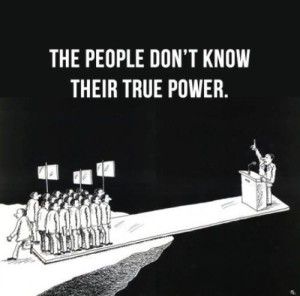Leadership is about empowering children
Posted by: Cambodian | Posted on: July 1, 2014Dear Fellow Friends and Readers;
 While watching the FIFA World Cup 2014, two outstanding things pop up to my mind: the involvement of the kids and the international stage team of two poor countries: Honduras and Bosnia.
While watching the FIFA World Cup 2014, two outstanding things pop up to my mind: the involvement of the kids and the international stage team of two poor countries: Honduras and Bosnia.
When each team is lining up into the ring, each player is tossing hand of a kid. It is a great symbol of building up younger generation to take turn everything elders have accomplished. Cambodian political culture has richly embedded by this concept. Sometime, Khmer proverb said “children are the young bamboo seed of the decayed bamboo” or “Tompeang Snorng Russey”; some time, Khmer proverb said “youths are the backbone of the future nation” etc.
But in contrast, those nicely verbally said proverb is placed in context only, not in implementation, or it is only the rhetoric, not a realistic one. Observing from parents who like to dominate children in all things rather than listening the idea or demand of the children, the educators and government leaders are in position of personal conceit of power rather than using that power to build or create or innovate new things towards their students or citizens for long-run development. Cambodian educational curriculum and teaching pedagogy are strongly embedded by vertical approach, not horizontal approach at all. Political leaders of Cambodia are indulged only in personal, family and relative corruption, or strongly embedded by patronage system, not the institutional system or rule of law at all.
For Honduras and Bosnia, these two countries have shared poverty line and civil war like Cambodia but these two countries can rise up to this international stage because of their leadership who have utilized the time frame of around 28 to 30 years like Cambodia. Their population well-being is likely well off than Cambodia. Their foreign debts is likely paid off than Cambodia. Their leadership has been clearly reshuffled in the expectation of receiving more progressive and democratization etc. Cambodia is in contrast, the incumbents are afraid of open society policy by closing its people mouth through public media, or placing restrictions to those internal power cells not to freely express their leadership, and maintain clientele-patronage-based governance regardless of fearing unavoidable backfire. The Prime Minister has been so proud of his two achievements: stability and getting rid of genocidal through frequent public speech and televisation. In reality, he has closed his leadership by ignoring the demand of Cambodian youths who are representing 70% of total Cambodian population, or he still cannot see the leadership deficit through the recent national election result. Those youths are demanding social justice, political change, savvy economic development, freedom of expression, information and technology (IT), quality of education, decent living with minimum wage jobs, and much more…etc They are enough and enough for the political propaganda of national stability and the absence of civil war.
Today is July 1, 2014 and it is the Canada Day which Canadian government and its people are celebrating the 147th anniversary of the past but glancing at the future on how Canadian people can enrich the multiculturalism society, greater shared responsibility of nation-building within a liberal democracy processes, modernization of both social justice and economic equity, and boost itself to the international stage by providing more aids to poorer countries, reduce foreign loans and increase peace safeguard staffs to the world etc. The national and private media which are source of public education have collectively shouldered to educate the wrong-doers but admire the right-doers without censor or fear of political reprisal.
Just little thing, all Cambodians should consider to practice, please teach your kids or others the best things as you are the actors of role model. Below is a simple example of a kid whose parents are Khmer Kampuchea Krom-born and she said from her heart in which inspired all attendants during the 65th anniversary of the loss of this rich land.
Hello everyone;
My name’s Kathy Dao. I am very honored today to express some of my opinion on who am I, how could I share Khmer identity with others and my thought on the birth place of my parents, Khmer Kampuchea Krom.
Firstly, I was born in Canada but my first language is Khmer. At school, English is my second language. Of course, I spoke Khmer since I learnt how to speak as a toodler. Although, I havebeen growing up among Canadian children at school, but I have used Khmer language, eaten Khmer food and dressed Khmer cloths most of the time.
Secondly, I have informed my teachers and friends at school that I am Khmer. My parents are Khmer. My grand parents are Khmer. I have shared with them about Khmer culture, food, cloths and temples.
Thirdly, I must try to speak Khmer and learn how to write Khmer alphabets so that I can be a bilingual person living in this bilingual country. More than this, when I visit my parents’ birth place at Kampuchea Krom, I can speak Khmer with all those Khmer people without using English a word.
I think the future of Khmer Kampuchea Krom will depend on how Khmer Krom children know their own roots, their culture, their language and their freedom. I would like to urge all Khmer parents to use their little time to educate their children to speak Khmer language as well as to write Khmer alphabets so that they can receive both ability to speak Khmer fluently and to preserve their roots.
Thank you very much,












Comments are Closed